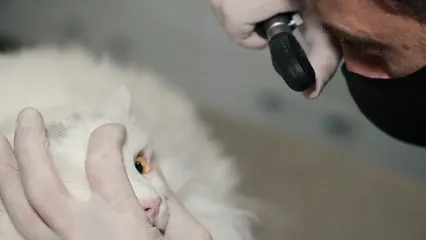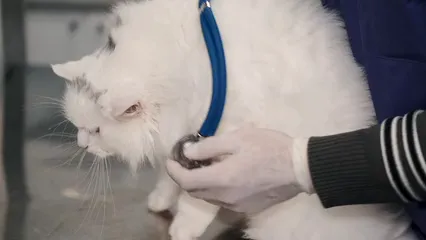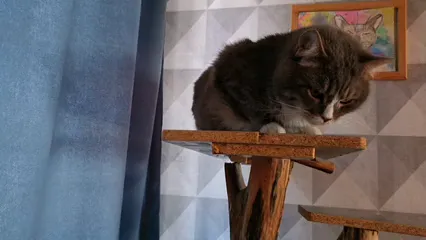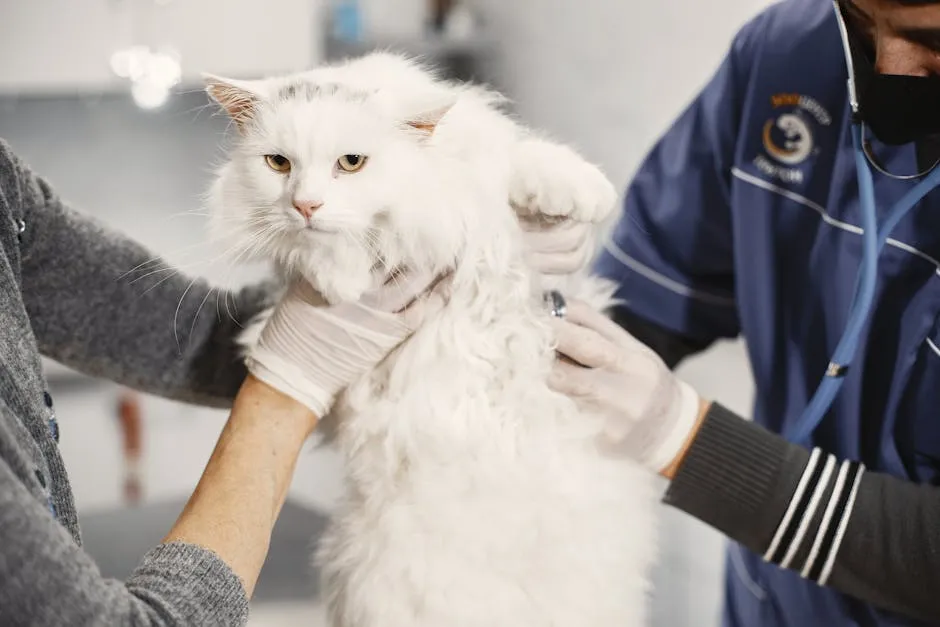
Why Do Cats Eat Grass? Understanding This Common Feline Behavior
Introduction
Have you ever noticed your cat munching on grass and wondered why? This curious behavior often puzzles cat owners. Many people question if their feline friends are unwell or simply indulging in a quirky habit. In this article, we’ll discuss the reasons behind grass consumption in cats and highlight when you should be concerned about this behavior.
Summary and Overview
Cats eating grass is a common sight, but the reasons behind it can be varied. Several theories exist, ranging from instinctual behaviors to health-related benefits. For instance, some believe that grass provides essential nutrients, like folic acid, which can be beneficial to felines. Others suggest that eating grass helps with digestion or acts as a natural remedy for discomfort. Understanding why your cat eats grass is crucial for their well-being. By recognizing the signs of potential issues, you can ensure your pet stays happy and healthy.

Theories Behind Grass Eating in Cats
Nutritional Supplement
Many believe that grass offers essential nutrients to cats. One key nutrient is folic acid. This vitamin helps transport oxygen in the bloodstream, which is vital for overall health. In the wild, cats consume prey that includes plant matter. However, commercial cat food often lacks these beneficial nutrients. Eating grass could help bridge that gap, providing some nutritional support that their regular diet may miss. It’s fascinating how a simple blade of grass can contribute to your feline’s well-being.
If your cat is missing out on essential nutrients, consider getting them a boost with Folic Acid Supplements for Cats. These supplements can help ensure your furry friend is getting everything they need to thrive, especially if they tend to be picky eaters!

Digestive Aid
Grass can also be a natural digestive aid for cats. Its fibrous content promotes smoother digestion. This is especially helpful for cats that struggle with hairballs. When cats groom themselves, they ingest hair, which can lead to blockages. Eating grass can help push these hairballs through the digestive tract. The fiber in grass encourages movement in the intestines, promoting healthy bowel movements. So, if you see your cat munching away, it might just be their way of ensuring a happy tummy.
If your cat is having trouble with hairballs, you might want to try Cat Hairball Control Treats. These tasty treats are formulated to help reduce hairball formation and keep your cat’s digestive system running smoothly.

Self-Medication
Another compelling theory is that cats eat grass to self-medicate. Sometimes, eating grass can induce vomiting, helping them expel indigestible materials. This includes fur and feathers from their prey. When a cat feels discomfort, munching on grass can be a natural way to regulate their system. This behavior can serve as a form of cleansing, allowing your cat to feel better after clearing out what doesn’t sit right. It’s a fascinating instinct that showcases their connection to their natural survival methods.

Evolutionary Instincts
Cats have a fascinating history tied to their wild ancestors. In the wild, these creatures consumed their prey entirely, including the plant matter found in herbivorous animals’ stomachs. This behavior may have allowed them to obtain essential nutrients that their strictly carnivorous diet lacks. Eating grass could be an instinctual throwback, as it helps them reconnect with their natural feeding habits. It’s a survival tactic that links them to their evolutionary roots, allowing them to maintain a balanced diet that incorporates some plant matter. This behavior underscores how deeply ingrained these instincts are, even in our modern house cats.

Behavioral Aspects
Curiosity and Play
Cats are inherently curious animals. This curiosity often leads them to investigate their surroundings, including the interesting textures of grass. For many kittens, chewing on grass is part of their playful exploration. They love to nibble and test different tastes as they learn about their environment. This behavior can serve as a form of entertainment, stimulating their senses and keeping them engaged. So, when you see your cat munching on grass, it could just be their way of having fun!
To keep that playful spirit alive, consider investing in an Interactive Cat Toy. These toys are designed to engage your cat’s hunting instincts and provide hours of entertainment, keeping them mentally stimulated!

Stress Relief
Nibbling on grass may also help some cats feel more relaxed. For indoor cats, who might not have as many opportunities for play, munching on grass can become a soothing activity. The act of chewing can provide comfort, similar to how humans might chew gum when stressed. This behavior may serve to relieve anxiety or boredom in cats, making it an important outlet for their emotions. If your cat seems calmer after a little grass snack, it could be their way of coping with daily stresses.

Understanding emotional triggers is key for your cat’s stress relief. why is understanding emotional triggers important for stress relief
Safety Considerations
Is Grass Safe for Cats to Eat?
When it comes to your cat munching on grass, safety is key. Ensure that any grass your feline friend eats is free from pesticides or chemicals. These substances can be harmful or even toxic to cats. If your cat enjoys outdoor grass, monitor the area for any treatments that might pose a risk. Consider providing safe indoor alternatives like cat grass or wheatgrass. These options are specifically grown for pets and can satisfy their cravings without the dangers of treated outdoor grass. By taking these steps, you can help ensure your cat has a safe and healthy grazing experience.

Speaking of safe indoor options, why not try a Cat Grass Planter Kit? This kit allows you to grow your own cat grass at home, ensuring it’s safe and free from harmful chemicals. Plus, your cat will love having their own little garden!
When to Consult a Veterinarian
While grass eating is normal, some signs may indicate a need for veterinary attention. If your cat is eating excessive amounts of grass, it could be a red flag. Continuous vomiting after grass consumption is also concerning. Keep an eye out for unusual behavioral changes, such as lethargy or loss of appetite. Regular check-ups with your vet can help maintain your cat’s overall health. If you notice any persistent issues or have concerns about your cat’s grass-eating habits, don’t hesitate to reach out to a veterinarian for guidance.

Conclusion
Cats munching on grass is a common and normal behavior. It can stem from various reasons, including nutritional needs and instinctual habits. Remember, most cats enjoy this activity without any issues. However, it’s essential to monitor your cat’s habits. If you notice excessive grass consumption or signs of distress, like frequent vomiting, consult your veterinarian. Providing safe options, like cat grass, can help satisfy their cravings while keeping them healthy. A little attention goes a long way in ensuring your feline friend remains happy and well.

FAQs
What should I do if my cat starts eating grass more frequently?
If your cat suddenly increases grass consumption, observe their behavior closely. Occasional grazing is normal, but frequent eating may signal discomfort. If this behavior persists or is accompanied by vomiting or lethargy, it’s wise to consult your vet.
Can eating grass be harmful to my cat?
Eating grass can be safe as long as it isn’t treated with pesticides or chemicals. However, some grasses can cause digestive upset if consumed in large amounts. Always ensure your cat has access to safe, untreated grass.
Should I provide grass for my indoor cat?
Yes! Providing safe indoor grass options, like cat grass, can satisfy your indoor cat’s instincts. It allows them to munch safely and enjoy the texture, keeping them engaged and happy.
What types of grass are safe for cats to eat?
Safe grasses for cats include wheatgrass, oat grass, and barley grass. These varieties are non-toxic and can be grown indoors for your feline friend.
Why do some cats vomit after eating grass?
Some cats vomit after eating grass as a natural response to expel indigestible materials. This behavior often helps them clear their stomach of fur or other debris. If vomiting occurs frequently, consult a veterinarian.
Is there a difference in grass eating behavior between indoor and outdoor cats?
Yes, indoor cats tend to eat grass out of curiosity or boredom, while outdoor cats may eat grass instinctively. Access to natural grass and plants can influence their grazing habits significantly.
Oh, and if you’re looking to keep your cat’s environment clean, don’t forget to check out a Cat Litter Mat. It can help keep the area around the litter box tidy and reduce tracking litter all over your home!
Please let us know what you think about our content by leaving a comment down below!
Thank you for reading till here 🙂
All images from Pexels




